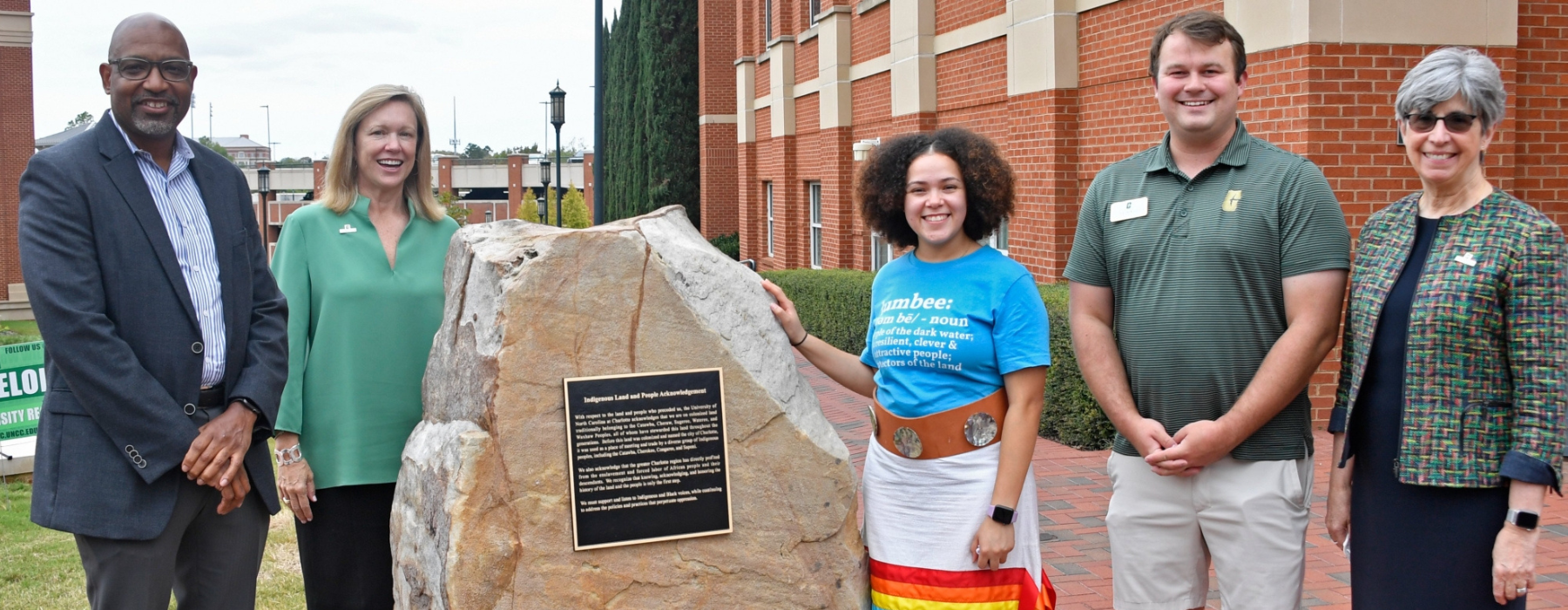Guide to Indigenous Land Acknowledgements
A land acknowledgement, often read at the beginning of events and gatherings, is a statement used to recognize and affirm the long-lasting relationship between Indigenous Peoples and their traditional land, while highlighting Indigenous histories and experiences. A shortened land acknowledgement can be used in email signatures, presentations, and syllabi. For websites, using the full or shortened statement is appropriate. When possible, if the shortened statement is used, please link to the full statement located on this page.
UNC Charlotte Shortened Indigenous Land Acknowledgement
“The University of North Carolina at Charlotte acknowledges that we are on colonized land traditionally belonging to the Catawba, Cheraw, Sugeree, Wateree, and Waxhaw Peoples, all of whom have stewarded this land throughout the generations.”
UNC Charlotte Expanded Indigenous Land and People Acknowledgement
“With respect to the land and people who preceded us, the University of North Carolina at Charlotte acknowledges that we are on colonized land traditionally belonging to the Catawba, Cheraw, Sugeree, Wateree, and Waxhaw Peoples, all of whom have stewarded this land throughout the generations. Before this land was colonized and named the city of Charlotte, it was used as a place of meeting and trade by a diverse group of Indigenous peoples, including the Catawba, Cherokee, Congaree, and Saponi. We also acknowledge that the greater Charlotte region has directly profited from the enslavement and forced labor of African people and their descendants. We recognize that knowing, acknowledging, and honoring the history of the land and the people is only the first step. We must support and listen to Indigenous and Black voices, while continuing to address the policies and practices that perpetuate oppression.”
- Catawba Indian Nation
- Catawba Indian Crafts
- Catawba Indian Health Service
- Honor Native Land Guide
- Native Land
- Native American South Carolina Archive
- The Indians of North Florida: From Carolina to Florida, the Story of the Survival of a Distinct American Indian Community by Christopher Scott Sewell and S. Pony Hill
- UNC Charlotte Women’s and Gender Studies Land Acknowledgement
- Best Practices for Engaging in Land Acknowledgements (developed by the Atkins Library Diversity & Inclusion Committee)
- UNC Charlotte Celebrates Indigenous People's Month - TED Talk from Brittany Hunt
